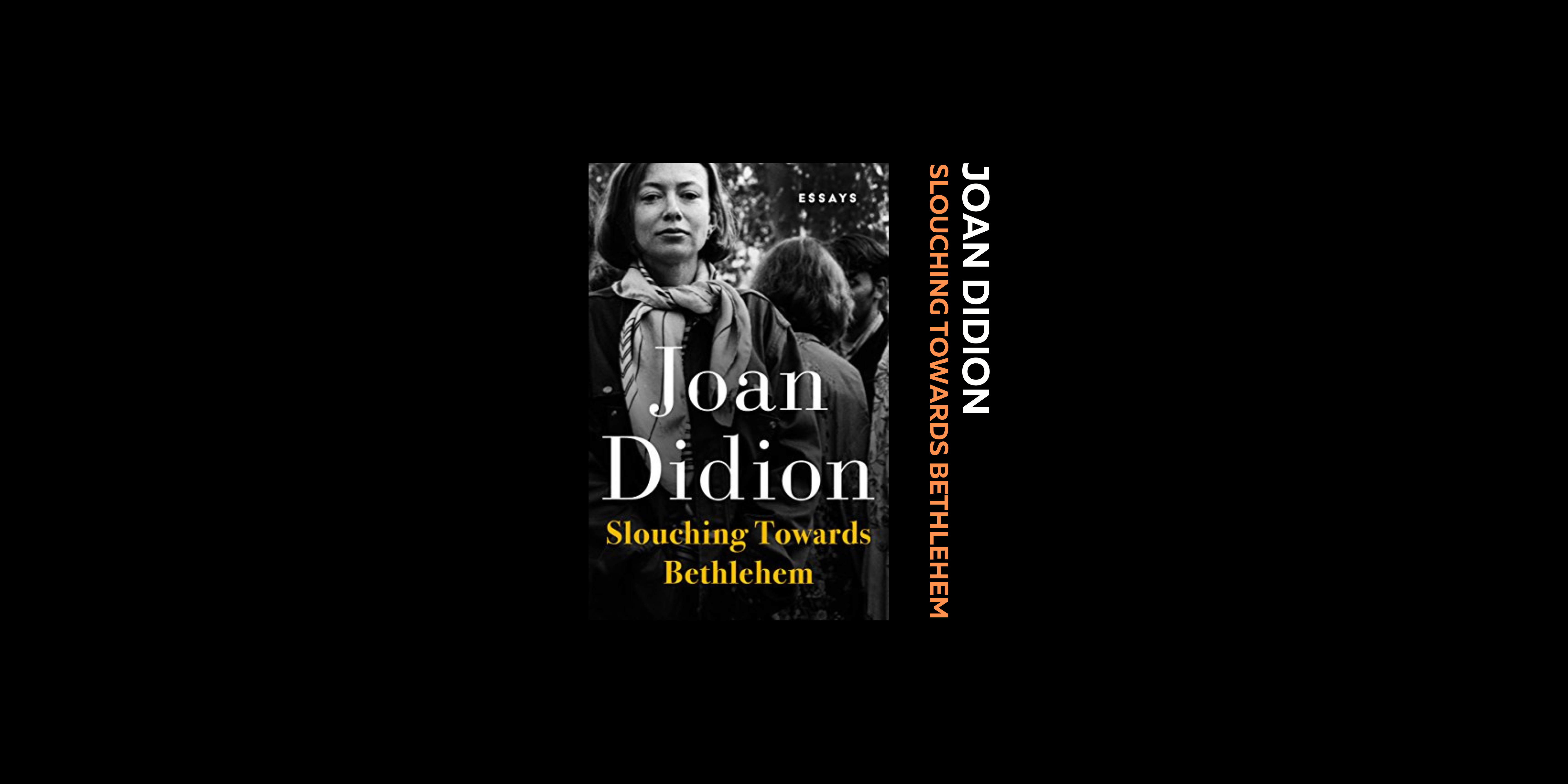…would like to give her home for her birthday…
Joan Didion’s On Going Home, Slouching Towards Bethlehem
A few months after leaving home for the first time, I experienced a sense of independence I had never felt before. I was an adult. Little things made for big achievements—travelling alone, renting my own space. Even a fractured foot later couldn’t dampen my spirit. I was big on responsibility and adulthood, and it was all very good—until I had to go home for the holidays.
Go home.
Around the same time, I was reading Joan Didion’s collection of essays called Slouching to Bethlehem, but in no linear fashion whatsoever. I picked what appealed to me first, intending finish the entire collection as I went along. On Going Home piqued my interest because I was going through a period of anxiety, triggered by being in the very spaces that held old memories. Not all were good; some even catatonic.
We did not fight. Nothing was wrong. And yet some nameless anxiety colored the emotional charges between me and the place that I came from.
Joan Didion’s On Going Home, Slouching Towards Bethlehem
My temporary break from the place had rendered it even more powerful in its ability to destruct. I remember dreaming about the building. It appeared old and haggard. Every nook and cranny looked like it was drooping with the sadness, fights, failures, even death it had witnessed over the years. In my dream, I didn’t move from room to room, but observed the decadence from a distance. And in the real world, here it stood, witnessing once again, my spiralling.
Paralyzed by the neurotic lassitude engendered by meeting one’s past at every turn, around every corner, inside every cupboard, I go aimlessly from room to room.
Joan Didion’s On Going Home, Slouching Towards Bethlehem
At times like these, I cannot help but think of future life in this home—a new life. I imagine new people moving in—a new family with dreams and hopes afresh. It takes me back to my own inception, and that of my siblings. Did our parents think of filling our days with happiness, and our lives with prosperity at the time? How and when did we really part ways? When did we begin to think differently? How did we reconcile? Did we reconcile?
She is an open and trusting child, unprepared for and unaccustomed to the ambushes of family life, and perhaps it is just as well that I can offer little of that life. I would like to give her more.
Joan Didion’s On Going Home, Slouching Towards Bethlehem
When home,
Questions trail off, answers are abandoned…
It is all too well. Before I can make head or tail of the “going home” experience, it is time to return to work. Once again, the books go back to where they were dug out from, promises are made about eating well and keeping well; bags are packed, and I return to the humdrum. Only, once again, I don’t know what’s wrong with me, if at all.
“Going home” has done little more than breaking the monotony.
Slouching towards Bethlehem contains a total of twenty essays divided into three parts. On Going Home is based on Didion’s personal account on going home, published under the head Personals, in the book. Her second collection of essays, The White Album, also is known for its breathtaking prose, coupled with deep reflections
